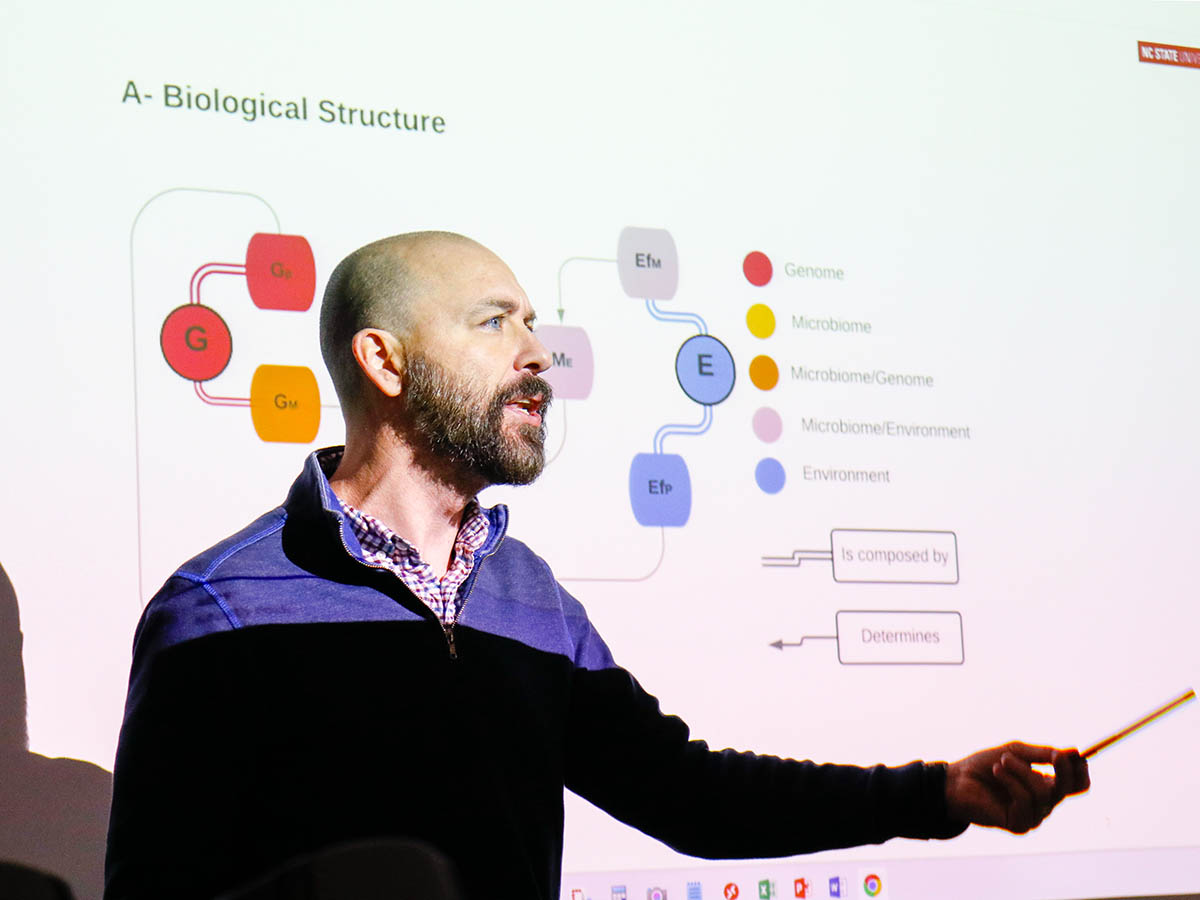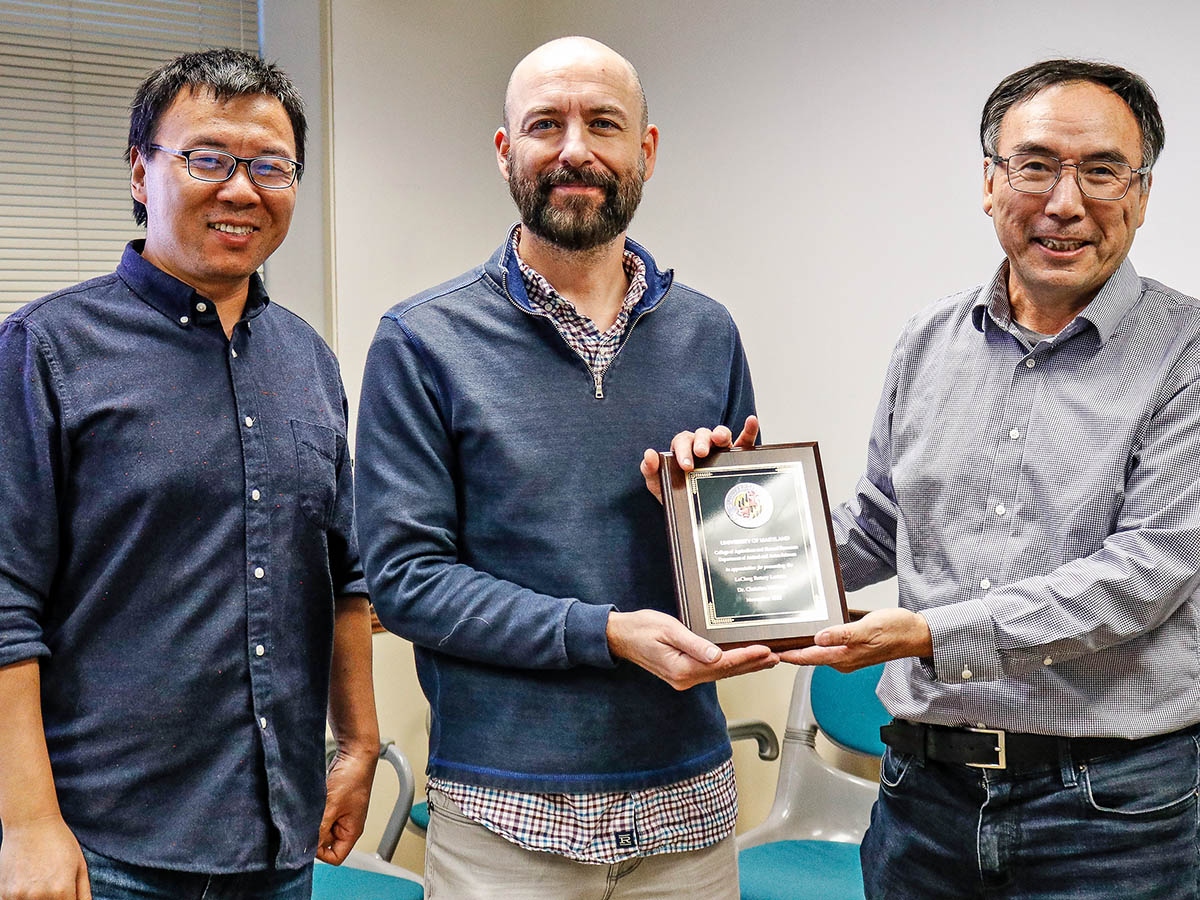Dr. Christian Maltecca highlights the benefits of considering the gut microbiome and genomic effects together in the quantitative analysis of his research.
Image Credit: Jonathan Stephanoff
The 2022 LeClerg Rotary Lecturer in Biometrics was held on Wednesday, November 16, delivered by Dr. Christian Maltecca. Dr. Maltecca is a professor of quantitative genetics and breeding and University Faculty Scholar in the Department of Animal Science at North Carolina State University.
Dr. Maltecca’s lecture was titled, “Implications of the Gut Microbiome for the Genetic Improvement of Swine,” and covered his ongoing research into the three-way interactions between environment (surroundings and diet), genotype (individual animal), and gut microbiome (microorganism populations in digestive track). At the core of his work, Dr. Maltecca studies the interplay of variables through quantitative analysis with implications in meat production.
In his research, Dr. Maltecca defined meat production efficiency in terms of the feed costs of an animal in comparison to its value when sold. The motivation behind his work is finding better metabolic processing, which can lower feed costs and lead to better production efficiency.
Dr. Maltecca is a geneticist by training, not a microbiologist, so his focus is the ‘host’ of the gut microbiome; however, in an integrated systems approach he highlighted that one cannot be studied without the other. To examine the gut microbiome, he uses groupings of bacteria that occur in different ratios within the gut microbiome. Specific ratios of specific types bacteria point to better microbiomes.
In earlier research Dr. Maltecca saw an association of similar gut microbiomes in genetic lines, even across different locations and diets, suggesting that genetic traits as well as the gut environment for similar microbiomes are passed to offspring.
Through quantitative analysis of a series of studies, Dr. Maltecca has shown that when the gut microbiome and genomic effects are considered together, they can explain more than each can on its own. Further, he has seen in his analysis that gut microbiomes are a better predictor of better digestion of lower-energy diets consisting of more ruffage, which is cheaper and more environmentally friendly.
Currently, Dr. Maltecca is running studies of swine heat stress/tolerance, and how genetics and gut microbiomes affect an animal’s ability to deal with heat as another avenue of exploration in the three-way interactions. His work has clear implications to improve efficiency of meat production.


The LeClerg Rotary Lectureship in Biometry is a lecture series held annually to honor Erwin L. LeClerg, a former Rotarian and statistician at the U.S.D.A. Agricultural Research Station in Beltsville, Maryland. Each year the lecture series includes research and teaching lectures given by a nationally recognized authority in quantitative genetics or biostatistics. The LeClerg Rotary Lectureship in Biometry is funded by an endowment which was established in 1983 by the College Park Rotary Club and the Rossmoor Aspen Hill Rotary Club to benefit the Biometrics Program at the University of Maryland.